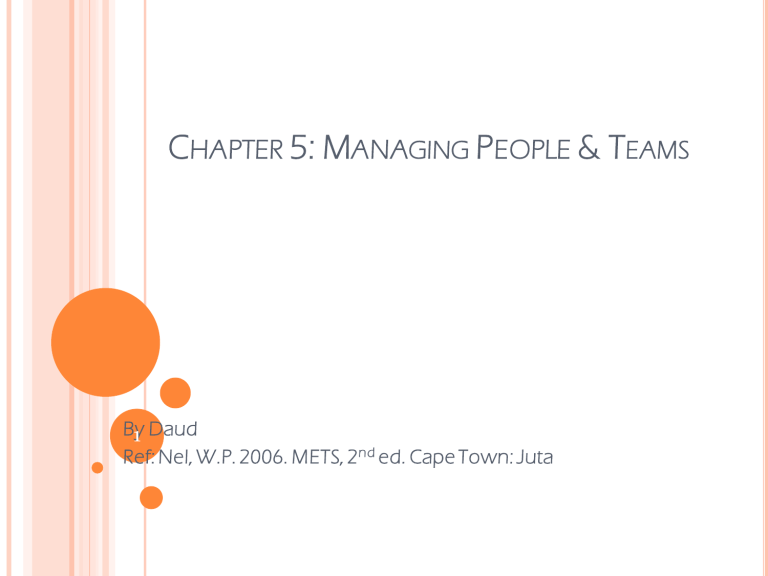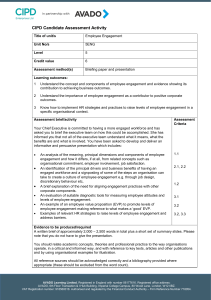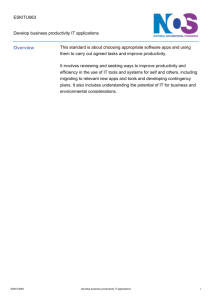
CHAPTER 5: MANAGING P EOPLE & TEAMS By 1 Daud Ref: Nel, W.P. 2006. METS, 2 nd ed. Cape Town: Juta HUMAN RELATIONS All kinds of interactions among people. Emphasizes the analysis of human behaviour, preventions strategies and the resolution of behavioural problems. The South African Constitution forms the basis of human relations in south Africa. Labour legislation, such as Skills Development Act, Labour Relations Act etc focus mostly on the human side of business. 2 SOUND HUMAN RELATIONS Guidelines for sound human relationships: Communication Trust: employees are less likely to discuss and share opinions, ideas with superiors they don’t trust. When there is lack of trust, there is also less communication of information to management and employees do not easily express their true feelings and opinions. Positive attitude: Open mindedness: effective managers have the skill to integrate employee contributions by being open-minded to new ideas, concepts and approaches. Appreciation: the need for recognition is a basic human need thus managers motivate employees through recognition for inputs. It is human nature that people like to be valued and appreciated when they do something. Networking: sharing ideas for successful competitive advantage 3 CONFLICT A disagreement between individuals or groups due to opposing needs, ideas, goals and scarce resources. A degree of conflict can be viewed as productive. Conflicts have to be managed constructively in order to optimise organisational performance. 4 CONFLICT CAUSES Conflicts arise as a result of: Breakdown in communication Personality clashes Unfair managerial practices Unfair leadership styles Scarce resources, Cultural incompatibility. 5 CONFLICT TYPES • A conflict can be: Intrapersonal: occurs within an individual when two equally attractive and irreconcilable options are presented. Interpersonal: between two individuals due to different needs and goals. Intergroup: between groups 6 TEAMS Teams enhance the success of work. The merits of teams could include: The quality of group decisions in good teams is better than that of individual decisions, due to increased level of input. Higher level of commitment among team members. Complex problems are solved more efficiently. Improved job satisfaction SMWT enhances employees’ commitment to the organisation, because they offer wider participation and ownership of important organisational decisions. SMWT enhance company performance SMWT enhance organisational learning and adaptability 7 SMWT TEAM MEMBER ROLE Problem Solver: understands and utilises problem solving techniques to identify and solve problems Trainer: trains members on skills areas and shares knowledge Decision Maker: provides input & makes decisions on issues Customer Advocate: strives to meet customer needs. Team Player: demonstrates good interpersonal skills & supports team members Resource Provider: broadens knowledge base through diverse set of skills. Skilled Worker: avails all necessary skills and knowledge to8 perform tasks.




